Where are the borders of Poland? Russian answer to the "Polish question". Ending
Peter Stolypin, from a speech in the State Duma 5 in May 1908
The first Interim Ministerial Meeting held in 1902 under the chairmanship of K.P. Pobedonostsev. It decided to establish an Orthodox Kholmsk diocese (1). Minister of the Interior D.S. At the same time, Sipyagin proposed that, as soon as possible, on the lands of the future province, the practice of prohibiting the purchase of land by the Poles should be introduced, adding to this by forcibly evicting particularly zealous Catholics from Kholmshchyna.
However, a more balanced point of view was voiced at the meeting - from the mouth of Finance Minister S.Yu. Witte, who insisted on measures of a purely economic nature in relation to the Poles of the Kholm region. Witte added that if one does not mean to resort to this kind of measures, then the allocation of the Hill loses all meaning. The same central authority operates in Warsaw and will operate in Hill, the authority having the authority to resort to protecting the Russian element of the population to the same measures (2).
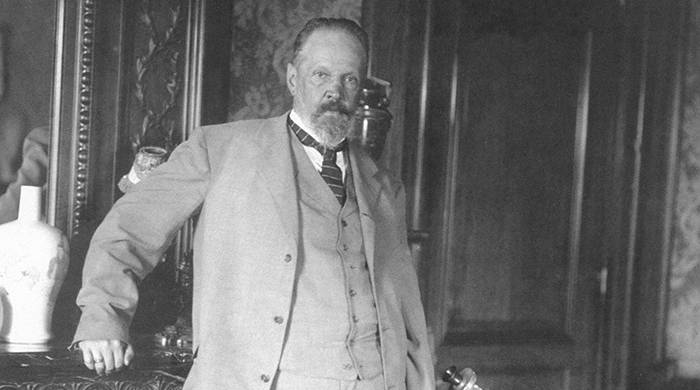
Even in the solution of the Polish question, Sergei Witte proposed to act by economic means.
Zupinka at the Hill: Where the "Poles" Gutara on the Move
With all the slowness of the Russian bureaucracy, especially in spiritual matters, the establishment of a diocese in Kholm took place rather quickly - only three years later, in fact, at the height of the First Russian Revolution. The diocese was headed by Bishop Eulogius of Lublin, undoubtedly a patriot, but an extreme reactionary and supporter of rampant Russification. It is not surprising that Ulyanov-Lenin, in his characteristic manner, bitingly called him to embody all of the “disgusting hypocrisy of a fanatic” (3).
But the very idea of isolating the province as a province was rejected by the meeting, and another Special Meeting on the Issue of Holmschina could be gathered only four years later. Bishop Eulogius, Lublin and Sedlets Governors, Chairman of the Office of the Warsaw Governor-General and a number of lower-level officials took part in it. It was chaired by S.E. Kryzhanovsky, at that time Comrade Foreign Minister and Secretary of State.
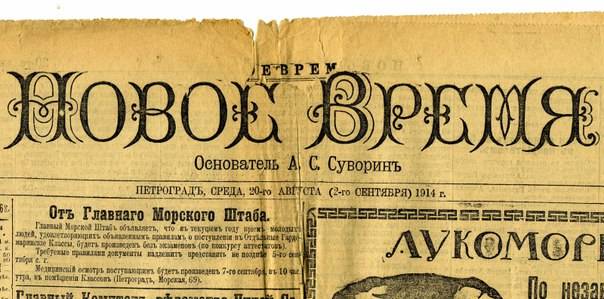
Without waiting for the traditional red tape for the Russian bureaucracy, the Suvorin New Time, on the opening day of the November 23 meeting, 1906 of the year was extremely categorical. "If this stupidly inhibited question does not immediately receive a quick and clear decision in St. Petersburg, then the Russian people in the Kholm region will finally perish." This was hardly a reaction to the speeches in the press, but the Special Meeting quite promptly made a compromise decision: to “single out” the Kholm province without changes in economic, civil and legal relations.
From a military-strategic point of view, it was decided to leave the allotted lands under the jurisdiction of the Warsaw Military District. In case of difficulties, it was proposed to transfer part of the counties directly to Volyn and Grodno gubernias. Nicholas II approved the decisions of the meeting as a whole and set a deadline of November 1907. Metropolitan Eulogius testifies that, later, the struggle in the Duma commission around the Hill issue was stubborn and active. The Poles slowed down the discussion by endless debates, the left-wing members of the commission always voted against Metropolitan Eulogius, he said, regardless of whether he was right or wrong in defending (4).
Cathedral in Holm for a short time fell to remain Orthodox
The loyal Octobrists, whom the “Kholmshchina case” actually didn’t care much about, tried to keep the nationalists in check by leading a trade in votes: they promised support in the Kholm issue in exchange for back support in other matters. The rightists were also indifferent to the problem of Kholm region and were unhappy with the transfer of Eulogius from them to the nationalists. In the latter case, estate egoism also had an effect: “The Polish landowner is closer to us than the Russian peasant,” many monarchists of the nobility (5) considered.
The Kholmsky question was awarded consideration at the Slavic meetings that caused a wide international resonance. The participants of the Prague, 1908 year, speaking in favor of equality of nations, broke out with a declaration, rather vague in form, but anti-Russian, in essence. The Russian press in response was not shy about expressions.
“No matter how different the Slavic congresses are resolved, the Polish question, no matter what resolutions they make about Kholmshchyna, this cannot be of any significance in resolving this issue. Kholmskaya Rus - Russian land. The Orthodox and Catholic Russian people live there, and it cannot be sacrificed to the Poles, even if Austria sent all its Kramarges there (6). Czech politician Karel Kramarzh, doctor of law, non-Slavic, and in the near future - the leader of the Young Czech party, was at that time vice president of the Austrian Chamber of Deputies. Already in 1918, he became the first prime minister of Czechoslovakia. Paradoxically, but unlike President Tomas Masaryk, he imagined an independent Czechoslovakia not as a republic, but as a monarchy, headed, perhaps, with one of the Russian grand dukes.
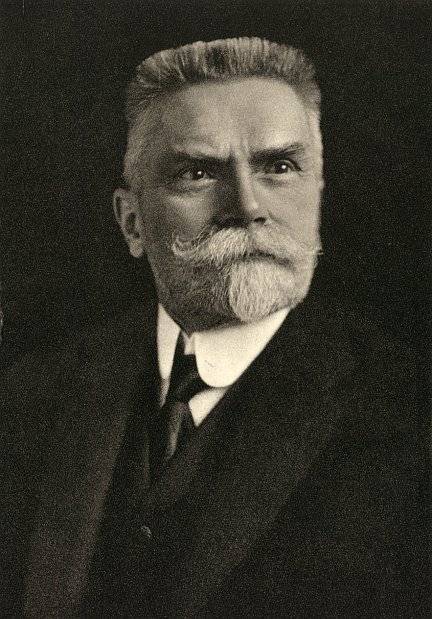
Karel Kramarzh
But the strengthening of anti-Polish policy in Russia (above all, the discussion in the Duma of the law on the separation of the Kholmsky Krai from the Kingdom of Poland) led to a sharp increase in the contradictions between Russian and Polish supporters of neo-Slavism. The next meeting of the Executive Committee in St. Petersburg in January-February of the 1910 year turned into a real scandal. The liberals were especially alarmed by the deliberately active participation in the movement of “sincere supporters of Slavic unity”, who, as a rule, adhered to unifying tendencies.
However, they could not resist the onslaught of these new Slavophiles. The majority in the Russian delegation (it included about 70 people) constituted the right wing of the “Slav-Loving”. In such conditions, the same Kramarzh caressed by the Russian press set a goal for the Austrian participants to "take care that no hostile (Russia - A.P.) decrees were adopted". “We cannot go into conflict with the state in which we live. Not engaging in politics is the motto of non-Slavism, ”the Czech politician said on the eve of his departure for Sofia.
This was not enough for the Poles, and, despite the post-revolutionary thaw in Russian-Polish relations, they pointedly did not go to the next Slavic congress. The Warsaw essayist Anton Zhvan was noted on this occasion with a publication in the Sofia newspaper Vecherna Poscha, and ... immediately rushed off to Grunwald for the pompous celebration of the 500 anniversary of the legendary battle, where the Russians and Poles almost once stories fought shoulder to shoulder with the crusaders of the Teutonic Order.
As always, Korvin-Milevsky, who retained his sober head in response to the deliberately anti-German character of the celebration, hastened to speak "soberingly" in the liberal press, but received in response from almost his own "Black Hundred" accusations of "joining a hostile manifestation against Russia." The Black Hundreds were so divided that they were ready to publicly, through the Duma, express a lack of confidence in the loyalty of an authoritative member of the State Council.
By that time, the national-religious struggle in the Kholm region had penetrated into the “lower classes” - into the very depths of people's life. The "soul", in which the Russian priests invariably accused priests, and from the side of the Orthodox at times acquired a truly mass character. It cost only two or three “gentlemen in cassocks” to settle in this or that Polish town, where almost daily christening began.
Russian nationalists did not hesitate in expressions: “The Poles are not a nation, but only an instrument of struggle against the Russian nation ... we (Russians) should not put up with any autonomies for Poland, with any concessions ...” The supporters of a hard imperial course were pathetically reminiscent of a “moan the Russian people, who always suffers from the rage of the Polish treacherous hand ”(7). “The local clergy from both sides are poisoning their“ flocks ”against each other. Enmity is a fact, not fiction, ”the Ukrainian nationalist weekly (8) recognized.
Allocation of Kholm region was unequivocally supported by few Ukrainian politicians, and Stolypin fully enjoyed this support. With great difficulty, Ukrainian “education” settled in the Kholm region, always acted from anti-Polish positions, but, nevertheless, in the struggle for the “Slavic (read: Ukrainian) Hill” they preferred to rely on their own strength, and not on the new ones - the Great Russians. They were clearly inferior in activity to the Polish “Matitsy”, who were promoting the Polish schools — even Ukrainian schools could not be organized in every Ukrainian village. Is it any wonder that in the 1910 year, when the official solution of the Kholmsky issue “Stolypynsky” could have been considered a foregone conclusion, the only Ukrainian village reading room named after Taras Shevchenko was closed in the village of Kobilyaki.
Antipanism of Mikhail Hrushevsky
The nationalist Mikhail Hrushevsky, advertised in modern Ukraine, whom some of the journalists aptly called “antipan”, immediately recalled to Catholics his own, not yet forgotten predictions. They talked about the fact that "trying to set Ukrainians against the Great Russians, they will never get real friends in their person." How relevant are the words of this hill native today, more than a hundred years later! And in the turbulent revolutionary days, this bright polemicist tirelessly argued that “Polish society did not use the decree of faith in the spirit of national justice” (9).
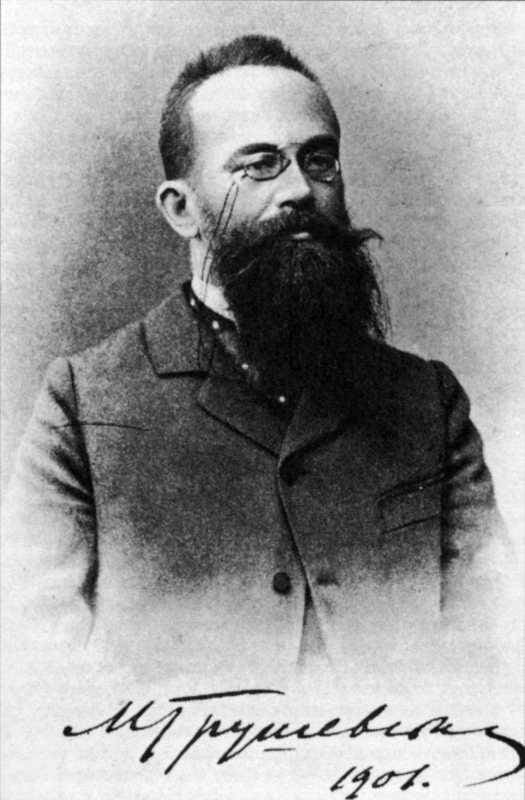
Mikhail Hrushevsky
By acting on the union for decades, instead of recreating the “people's” church, the priests stubbornly drew the Ukrainians into Catholicism. ” And in the 1907 year, when the first revolutionary wave came to naught, Hrushevsky, in response to reviving the idea of Polish autonomy, exclaimed that “the conclusion of Kholm region to an autonomous Poland would be a blatant injustice to the Ukrainian people” (10).
The logical pinnacle of the struggle of the Ukrainian nationalists and Hrushevsky personally for the “Slavic Hill” was the requirement to single it out as a Ukrainian land. However, for the Ukrainian "maslik" (bone), Hrushevsky, as a very authoritative historian, spoke in the days of the first Russian revolution. Responding to Tyszkiewicz's article in the Cadet Rech (well, of course, where else can the Polish gentry speak out), Hrushevsky attacked Polish politicians for discrediting the issue of Kholmshchyna, presenting it as a “true Russian” idea (11).
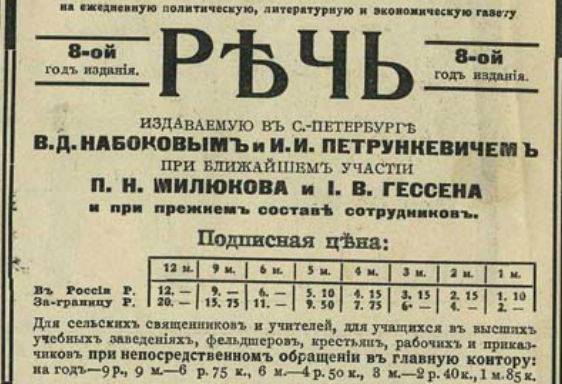
Two years later, Grushevsky succeeded in dispelling the Cadets' firm conviction that the separation of Kholmshchyna would upset the Russian-Polish rapprochement, weakening the external positions of the empire. The nationalist responded to the “bourgeois opposition” (by the way, the party of the constitutional democrats, both left and right) that had already lost the revolutionary fervor, was so unanimously accused of “reproaching Germany with Ukrainians” (12).
But before that, Grushevsky decided to use the opposition of the Slavs to the Germans, rightly noting that the peasants of Kholmshchyna would not cease to be Slavs, even if they fought. Trying to promote his dubious idea that, in essence, the plan to isolate Kholmshchina - the fruit of German intrigue, he successfully used the Polish press (13).
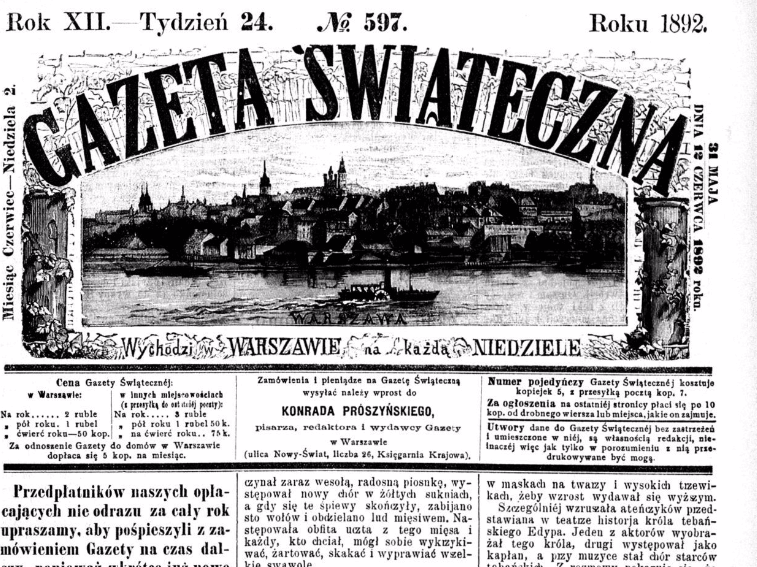
Grushevsky enjoyed the absolute support of the Duma deputy nationalist V.A. Bobrinsky, who in this connection became the object of regular jokes and attacks from the extreme left. Thus, the leader of the Social Democrats, Vladimir Lenin (Ulyanov), offered Bobrinsky "to sign up for the Austrian Social Democrats for the active defense of Ukrainians in the Kholm region" (14). When, in 1912, the allocation of the Kholmsky Krai was actually only a matter of time, Hrushevsky decided to put the presumptuous gentlemen again in place: "This is not about the fourth section of Poland, but about the struggle for the Ukrainian bone" (15) (again, "butter" - A .P.).
Subsequently, the most sober-minded Poles rightly criticized the National Democrats for the distinctive clericalism inherent in them at first, and they believed, not without reason, that it was he who led to the birth of the Holmsky project. The well-known liberal Alexander Sventokhovsky, who repeatedly reminded his opponents that Poland could find recognition in Russia, but not Catholicism, was extremely hard on the "inept" activity of the priests. At the same time, such politicians loyal to Russia did not stop talking about Kholmshchina - “this is also Polish land”.
Late initiative
The October 17 manifesto became an additional stimulus for disengagement on the Polish issue, and specifically regarding the allocation of the Kholm province. Thus, the Minister of Internal Affairs PN Durnovo, recognizing the strength of the impact of the “constitutional act” on public opinion in Kholmshchyna, believed that straight edge Russification should now be avoided, all the more so since all the measures taken to that did not bring anything. From the point of view of the minister, there was no rapprochement of the outskirts with the central lands. In response to a request from the Ministry of Internal Affairs, the Vilna and Kiev governors spoke in favor of the quickest allocation of Kholmshchina, but the Warsaw governor-general GAScalon responded with a categorical "no" —and to the idea of creating a new province and to the proposal to join the Kholmsky lands piecemeal to other generals governorships (16).
Despite such contradictions, soon after the publication of the manifesto, Nicholas II first of all accepted a deputation of public figures from Kholmshchyna, to the uttermost of which all members turned out to be ardent nationalists. What else could tell them "their emperor", except that "the interests of the Russian people of Kholm region are close and dear to me" (17), having favorably accepted the offer to have a representative in the province.
When Peter Stolypin became the head of the committee of ministers, the government took a firm course to eliminate separatism of the suburbs. One of the first statements of the future prime minister about the Kholmsky project, made as early as May 1906 of the year, is very characteristic: "The allocation of Khol'shchyna would cut off the wings of the Poles." As a member of the Duma, Stolypin managed to become known as a liberal, but at the head of the Ministry of Internal Affairs and the government began to differ enviable conservatism. It is not by chance that the “Black Hundred”, through its charitable society, sent a welcoming address to Nicholas II on the occasion of the appointment of Stolypin, and first of all Bishop Eulogius sent a new request on the Kholm theme to the Synod.
In the Second State Duma, Polish deputies much more actively raised the question of autonomy, the “natural” answer of the nationalists to this was the forcing of the question of the allocation of the Kholm province. So, 10 on April 1907, the Polish Kolo put forward the next autonomy project (18), which, however, is rather scandalous. However, immediately in response to the plenary session, extremely tendentious statistics about the population of Kholm region sounded, where with anxiety and indignation there was a rapid “polonization” of the native Russian region (19).
However, in compensation for the Polish Kolo, it was stated that all the reforms carried out in the empire, including the agrarian reform, on the Polish lands will be carried out within the framework of autonomy. It is not clear only, future or present. But, isn't it true, it is characteristic that in the 1907 year, seven years before the world war, the very idea of autonomy did not embarrass anyone. Moreover, it was spoken about as something taken for granted, it is another thing that nobody, even in the Duma, "cranked out" the mentioned reforms at that time did not count.
Novoye Vremya immediately commented on the bargaining about the prospect of autonomy in the spirit of the criminal chronicle: “Milyukov and his friends promised the city of Tyszkiewicz and his associates autonomy. They could not keep their promise, even if they wished. It is nothing else. as a tactical device, the Polish participants of this maneuver have sincerely admitted this "(20).
The Russian press, in response to the publication of the Historical Maps of Poland in Lviv, almost unanimously (among others, the newspapers Rossiya and Golos Moskvy, the same Novoye Vremya) accused the Poles of wanting to return the 1772 borders of the year, and even better to get not only Lviv and Hill, but also Kiev and Vilna. The Voice of Moscow was especially zealous, after all, asking a fair question: where are the borders of Poland? (21). The well-known historian and writer Kazimir Valishevsky immediately described the discussion as a game of parliamentarism.
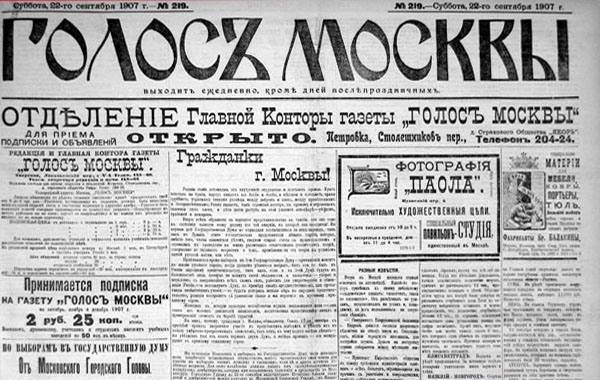
Even liberals had the sense at the time to recognize the autonomy requirement as "untimely" (22). A well-known aristocrat, a supporter of political compromise, Count Ignatius Korvin-Milevsky harshly criticized fellow tribesmen who occupied the deputy chairs in the first Russian parliament: "R. Dmovsky and his democratic associates, without exception, without any need and contrary to the needs of the region, took a sharp, tactless, indecent and a defiant position in relation to the Russian government ... In the Duma, they bowed to different cadets, bowed to some disgusting "Trudoviks", among whom were in abundance just "boors who could not ichit right paw on the left "(23).
The pick, however, continued. Deputy Stetsky declares that "we (the Poles) will not reconcile with our current legal position" (24). Vladislav Grabsky is trying to support him - "this is not Kholmskaya Rus, but a lace-like product of clerical contrivance" (25). Bishop Eulogius immediately rejected the claims of the Poles as "too bold and inappropriate" (26).
Instead of a conclusion
Well, then the Poles it is time to change the front. Russia has already proven its willingness to give Poland autonomy a few years before the world war, and Polish politicians had to seriously take on Germany and Austria-Hungary. For the sake of which, the Russians as allies might well have come in handy.
How the Polish renaissance eventually happened will be discussed in our next series of essays on the Polish issue.
Notes
1. F. Kornilov, Opening of the Kholm Eparchy, Lublin, 1906, p. 42.
2. Quoted by V. Rozhkov, Church Issues in the State Duma, M, 1975, p. 189.
3. IN AND. Lenin, “Classes and parties in their attitude to religion,” PSS, v. 17, p. 435.
4. Metropolitan Evlogy Georgievsky, The Path of My Life, M. 1994, p. 162.
5. Outskirts of Russia, 1909, No. 21, dated May 23.
6. Kulakovsky, PA, The Polish Question in the Past and Present, St. Petersburg, 1907, p. 12, 30, 42.
7. Kulakovsky PA, The Poles and the question of autonomy, St. Petersburg, 1906, p. 7.
8. Gromadska Dumka, Kiev, 1906, October 14, # XXUMX.
9. M. Grushevsky, To the Polish-Ukrainian Relations in Galicia, “Kiev Antiquity”, 1905, No. XXUMX-7, p. XXUMX.
10. Grushevsky M., Essay on the history of the Ukrainian people, St. Petersburg, 1907.
11. Rada, 1907, №2, 2 January.
12. Rada, 1909, No.87, 18 April.
13. Nazionalism Rusinski a wylaczenue Chelmsczijzny, "Dzien", 1909, No. XXUMX.
14. IN AND. Lenin, On the Question of National Politics, Essays, v.17, p.325, PSS, t.25, p.66-67.
15. Ukrainian Life, 1912, No.5, p .24.
16. RGIA, Foundation Office of the Council of Ministers, 1906, d.79, op.2, l.19, Letter G.A. Skalona to the request of the Minister of the Interior, l.19.
17. In the same place, l.20.
18. TsGIAO, f. State Duma, 1907, op.2, d.1212, l.12.
19. In the same place, l.14.
20. New time, 1907, No. 11112, 17 February.
21. Voice of Moscow, 1907, №47, February 22, №87, April 12.
22. A.L. Pogodin, The main currents of Polish social thought, St. Petersburg, 1908, p. 615.
23. I. Korvin-Milevsky, Fighting the lie, St. Petersburg, 1911, p. 23.
24. Stenographic report of the II State Duma, part 1, p. 906.
25. In the same place, ch.1, t.2, p.64.
26. In the same place, ch.1, p.1042.
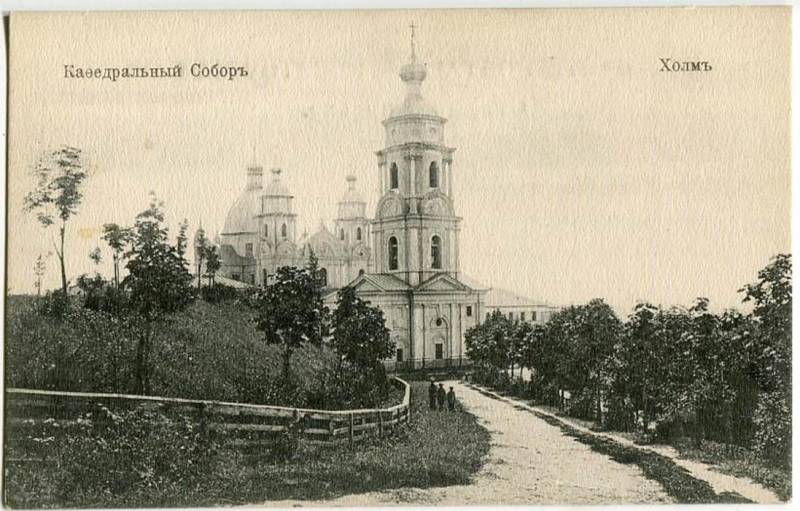

Information